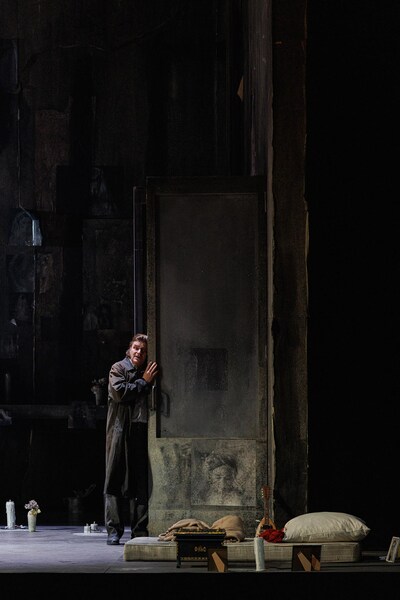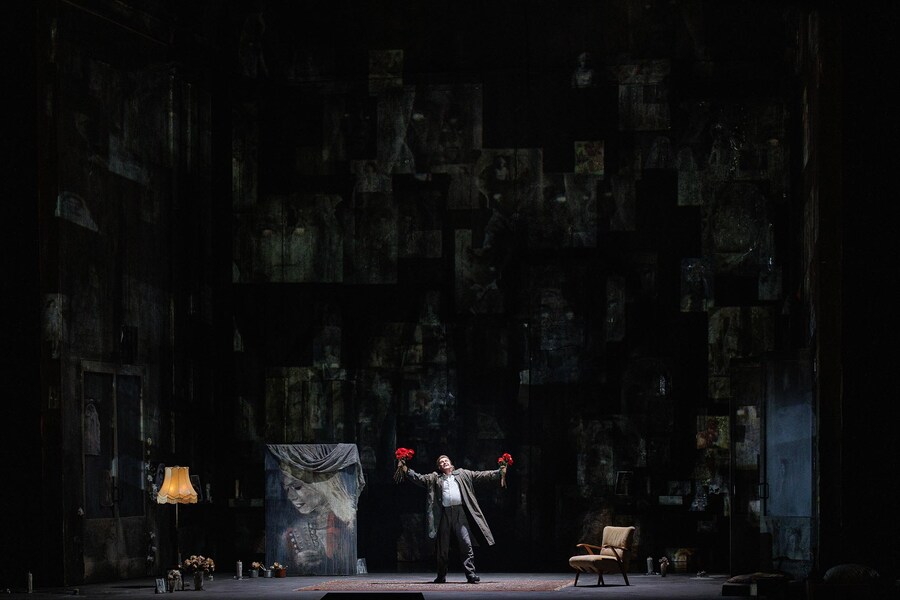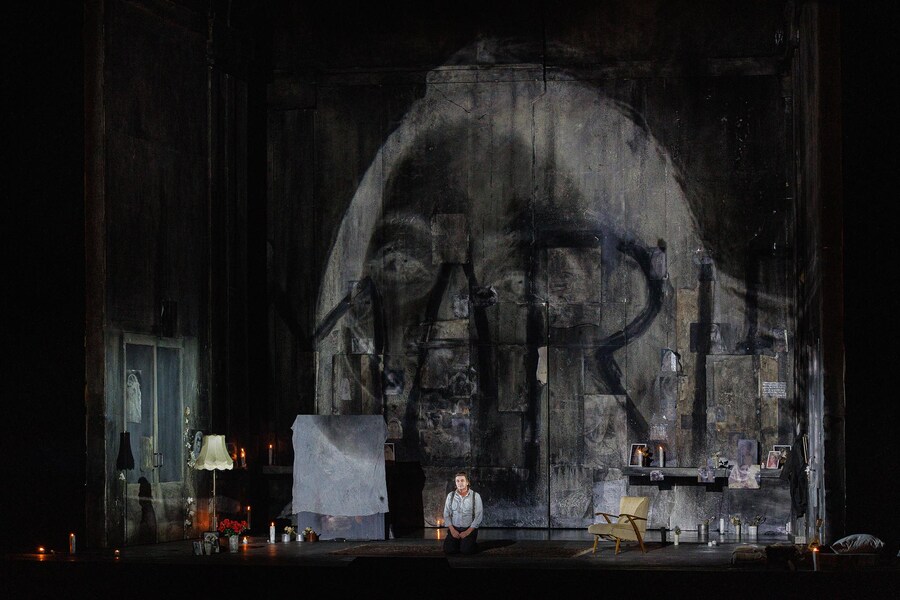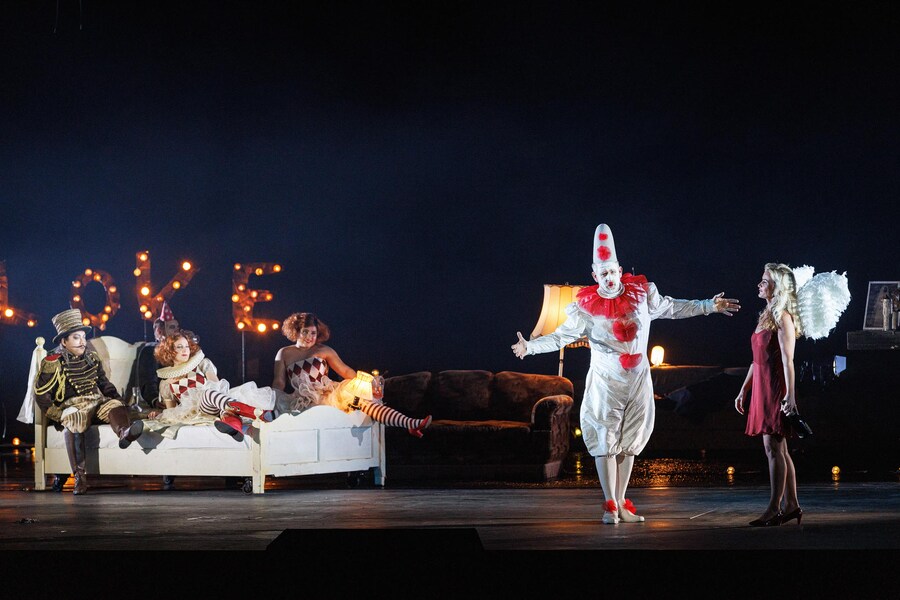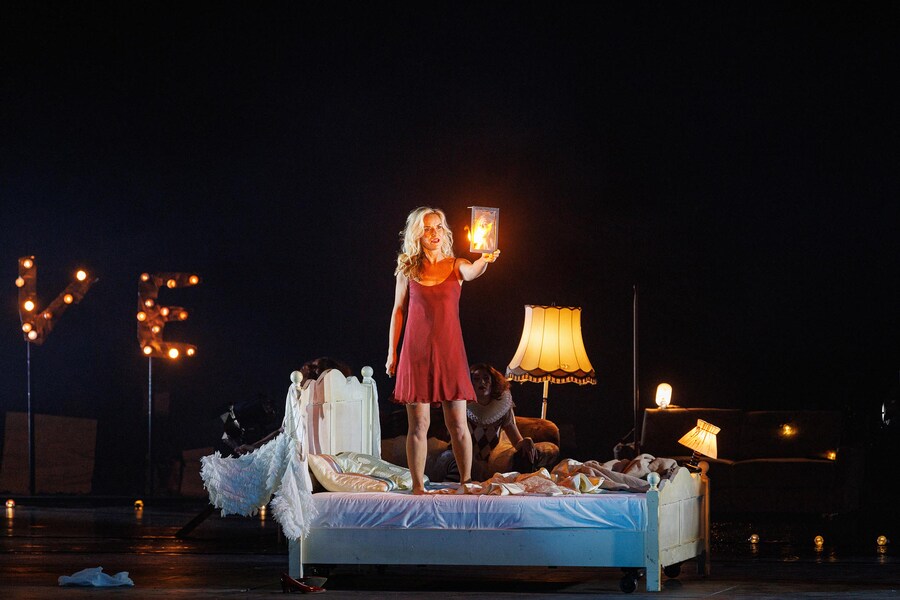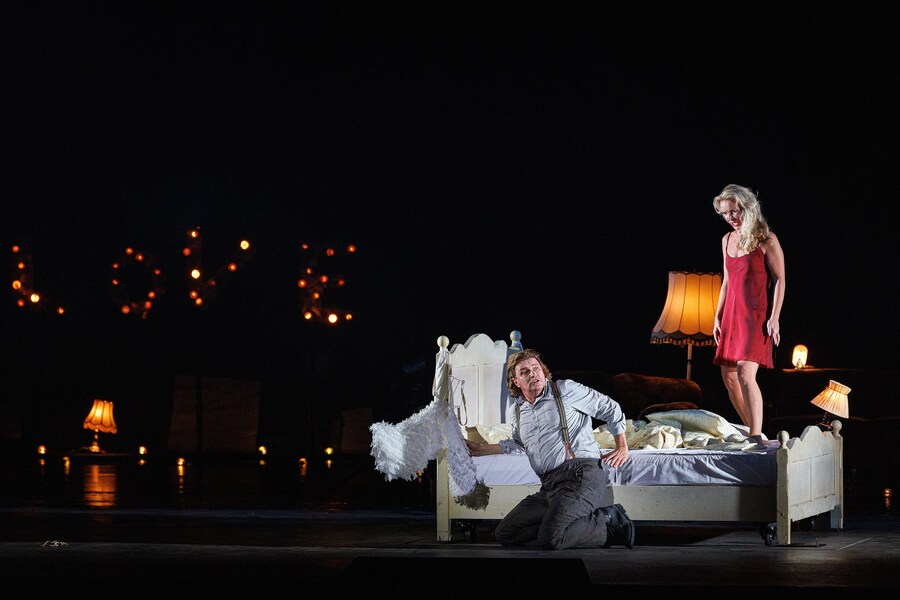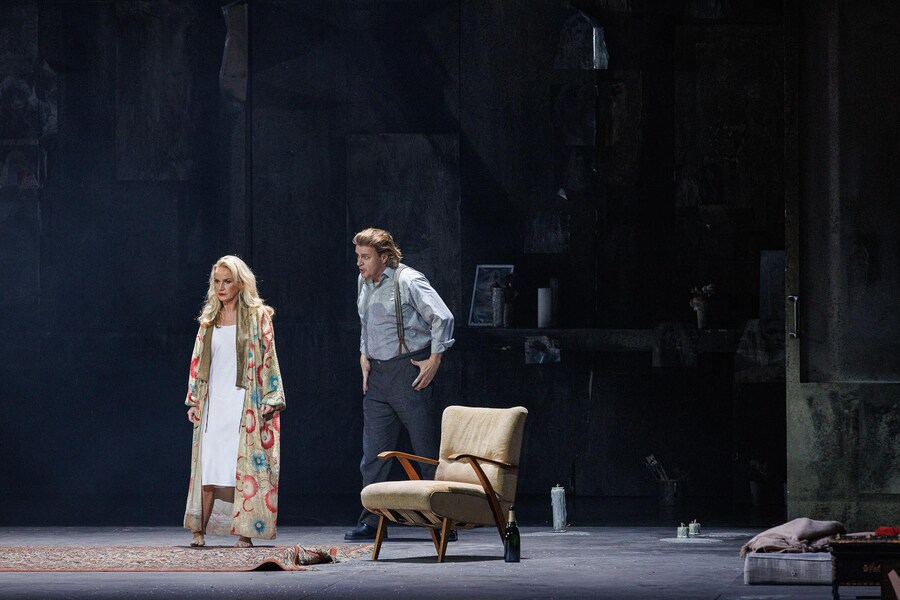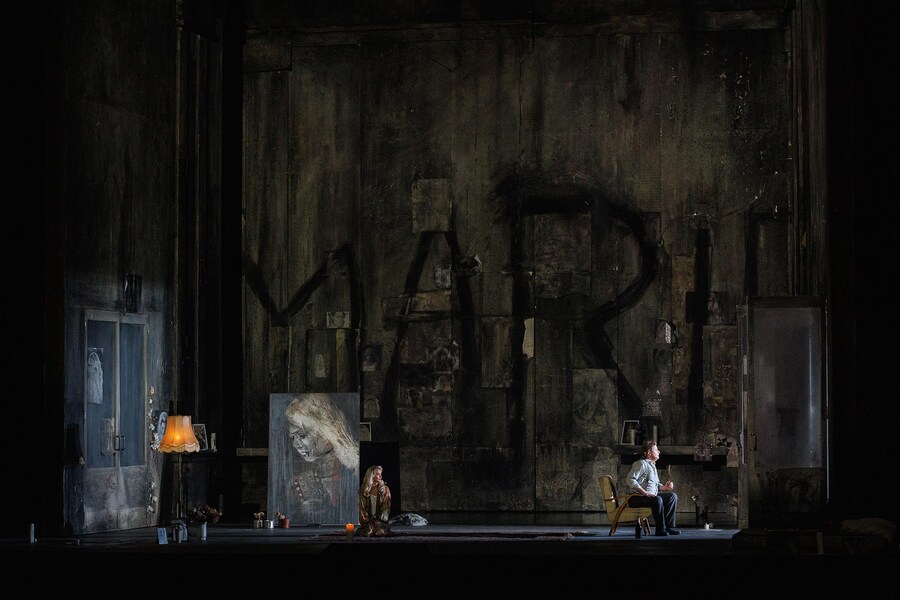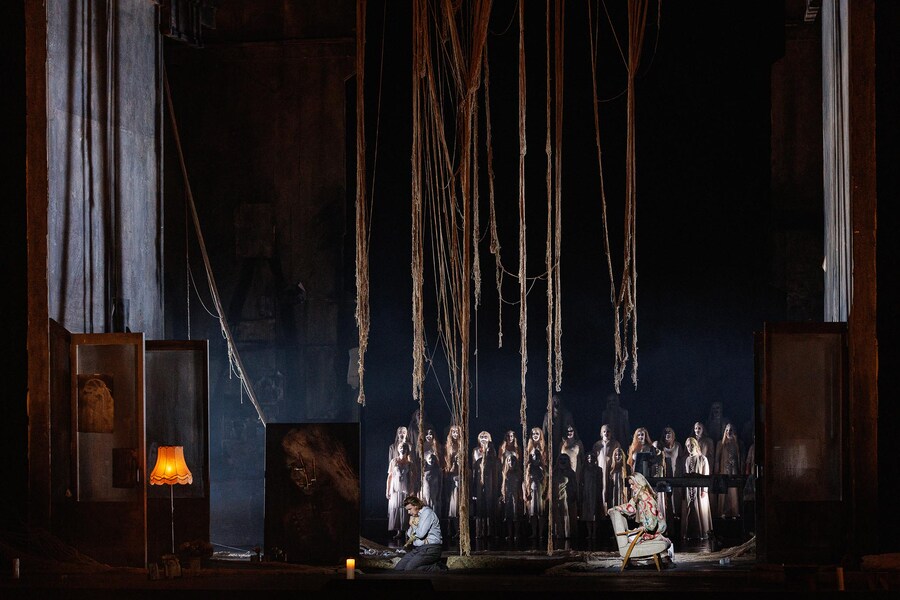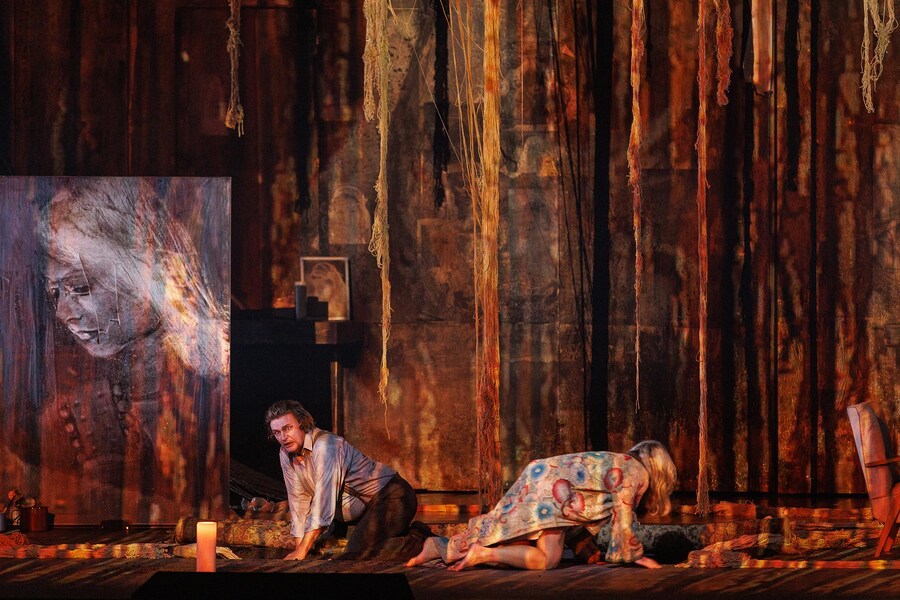Opera in three acts
Loosely adapted from Georges Rodenbachs novel Bruges-la-Morte, Libretto by Paul Schott
Performed in German with German and English supertitles
Premiere
16. December 2017,
No further performances in the current season.
Explore
Die tote Stadt
In the city of Bruges, the grieving widower Paul, caught up in a strange death cult, is living alone and in seclusion after losing his wife Marie. Then an encounter with the dancer Marietta turns his life upside down: The young woman becomes a mirror upon which he projects a longing for the return of his dead wife. Paul only comes to his senses after awakening from a nightmare in which he commits a murderous act. Can he find a way back to normality, free of his psychological burden? Following the simultaneous premiere of Die Tote Stadt in Hamburg and Cologne in 1920, the wunderkind Erich Wolfgang Korngold became, after Richard Strauss, Germany’s most frequently performed opera composer of the following decade. Emotionally taut and with powerful imagery, director David Bösch tells of Paul’s journey into himself, where dreams and reality gradually merge into one.
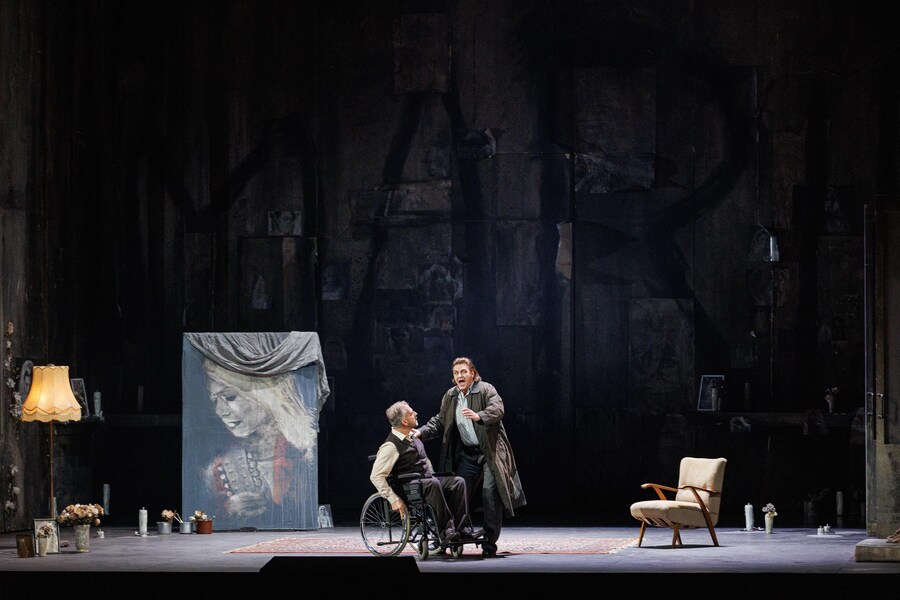
Gallery
